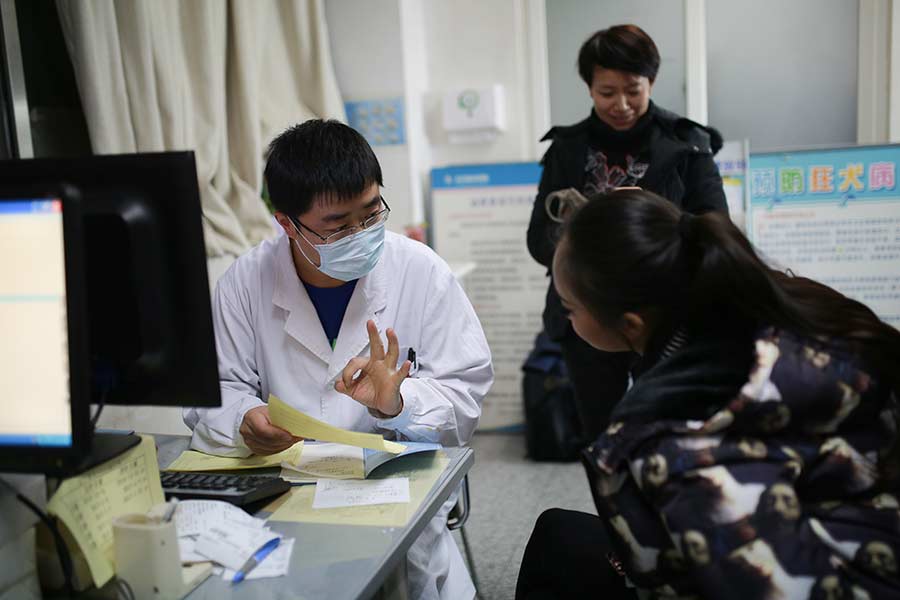Smart tech transforming medical sector
By Liu Zhihua | China Daily | Updated: 2019-07-09 09:59

The company says it established China's first third-party online prescription information transferring and sharing platform in 2017, jointly with the health authorities of Wuzhou in the Guangxi Zhuang autonomous region.
Since then, 21 hospitals and more than 100 pharmacies in Wuzhou have connected to the Bestyoo platform, which also incorporates the public medical insurance billing system and drug distribution system.
In July 2018, the social security authorities of Wuzhou signed contracts with several pharmacy chains, so that when patients buy medicine from those pharmacies through the Bestyoo platform, their bills will be settled directly with the public medical savings account.
Now, patients waiting in lines in hospitals in Wuzhou are rare, more than 200,000 patients have used the platform, and the average time a patient spends getting drugs has been reduced by 20 minutes, according to the company.
About 10 hospitals in Handan, Hebei province, have been connected to the city's prescription transferring and sharing platform, while most hospitals in Baiyin have been connected to Gansu province's provincial prescription transferring and sharing platform, as a pilot demonstration project, according to Ma.
Individual hospitals using Bestyoo platforms include nationally renowned institutions such as Beijing Fuwai Hospital, under the Chinese Academy of Medical Sciences, and Peking University People's Hospital, also in Beijing.
Apart from Bestyoo, many other companies are also exploring the area.
In early 2018, online healthcare giant WeDoctor announced plans to build a national prescription information transferring and sharing platform.
The platform aims to connect hospitals, pharmacies, drug distributors, and billing systems of local public medical savings accounts.
The company said the platform is connected to more than 30,000 pharmacies nationwide, and about 70,000 prescriptions are transferred from hospitals to pharmacies every day on average.
Zhang Jun, deputy head of Peking University People's Hospital, said the hospital uses a Bestyoo prescription transferring and sharing platform, because it wants to contribute to China's healthcare reform and improve patients' medical experience, through using online healthcare and smart hospital technologies.
The Chinese government has been trying to lower costs and improve experiences in the medical sector through a series of reforms centering on reducing the reliance of public hospitals on drug sales as an important source of income, such as ending public hospitals' longtime practice of selling drugs at a markup in 2017, and the release of guidelines and regulations on online healthcare and smart hospitals in 2018 and 2019, he said.
Outpatient medical services involve arranging a consultation, consultation, and post-consultation medication, and as the internet and smart hospital technologies have transformed the first two, it is time to use them to create better outcomes in the final stage, according to Zhang.
"Using the internet and smart hospital technologies (to transfer outpatients' prescription information) is an effective way to achieve the ultimate goal of separating drug sales from hospitals, so that patients visit a hospital for diagnosis and treatment, not medication," he said.
The digitalized platform helps with post-consultation patient management, improves medication safety, and more importantly, reduces visits for patients suffering from chronic diseases, so that the hospital can better serve patients with complicated medical conditions, he said.
Besides, since patients' medical records have become digitally traceable, it also helps with accumulating and sorting data for clinical studies, he said.
However, the Bestyoo platform designed for the hospital is only connected to about 40 pharmacies. Zhang hopes more pharmacies will join because that means more choice and convenience for patients.
He also hopes the public medical insurance in Beijing will cover drugs bought at pharmacies.
Public hospitals are still responsible for the majority of drug sales in China, although the share is declining slowly, according to a report by medical information provider Menet.com, despite Chinese authorities' attempts to reduce the reliance of hospitals on drug sales as a source of income, amid broader efforts to lower drug prices and tackle corruption.
Drug sales in China totaled 1.71 trillion yuan ($248 billion) in 2018, of which public hospital sales contributed 67.4 percent, the report said.
Wang Zhong, a researcher with the economics institute of Beijing Academy of Social Sciences, said it is important that hospitals cannot select pharmacies, otherwise corruption might arise.
He also said it is important to protect patients' privacy, because advertisers might be tempted to get hold of patients' medication information.
























